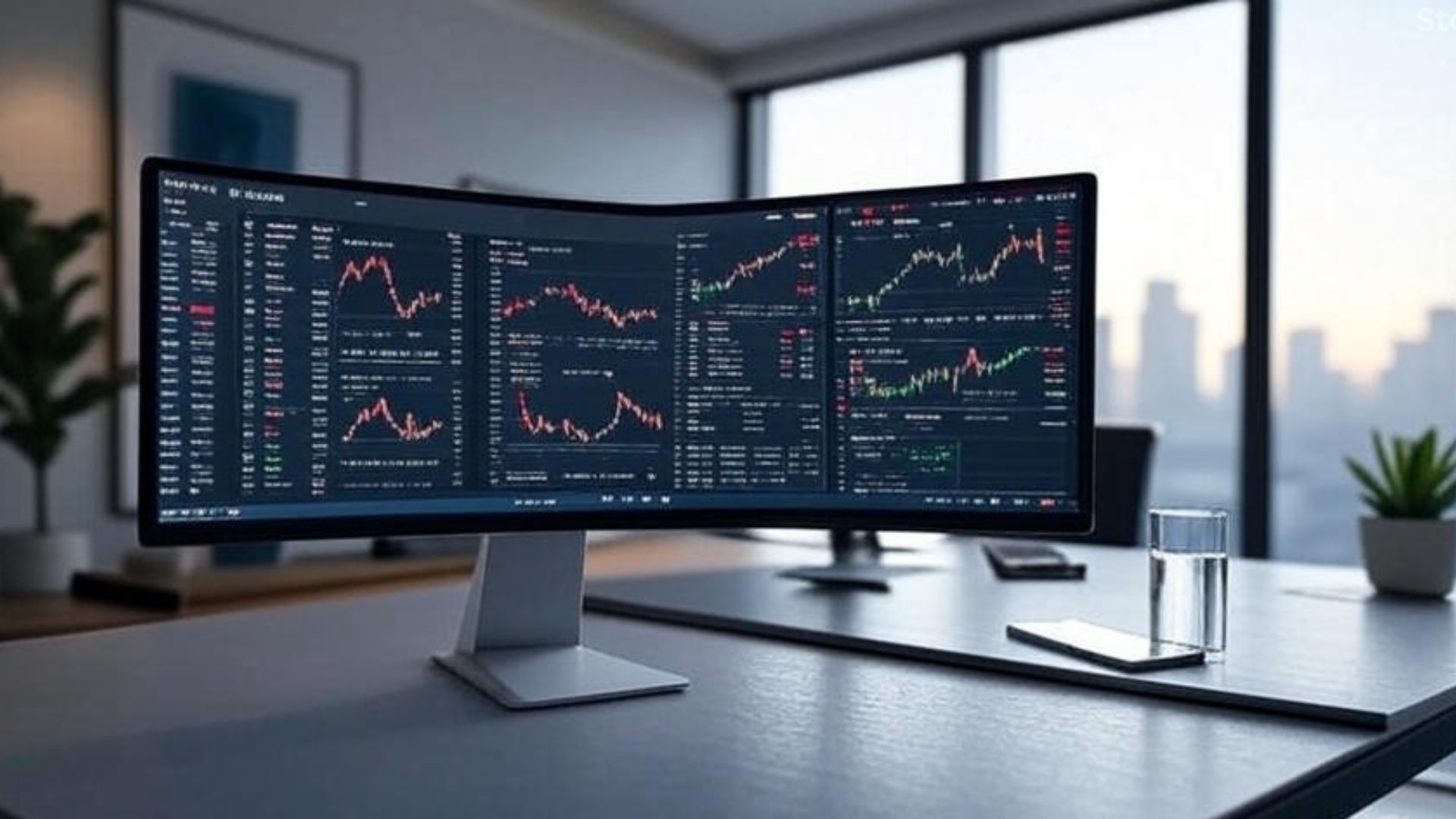What stocks do billionaires keep buying? It’s the question almost every investor secretly wants the answer to, because let’s be honest — it’s hard not to wonder what the world’s wealthiest, sharpest money managers are piling into. And no, it’s not because they’re magical or lucky; billionaire investors like Stephen Mandel and Chase Coleman have built their fortunes by staying obsessively plugged into long-term trends, digging into data most people never see, and making conviction bets when the rest of the market is still hesitating.
In 2026, the latest round of Form 13F filings — those public disclosures that show what big institutional investors are actually buying — revealed something interesting but not totally surprising: these heavyweight fund managers are doubling down on two familiar tech giants, Microsoft (NASDAQ: MSFT) and Amazon (NASDAQ: AMZN).
Both names sit comfortably inside the “Magnificent Seven,” that group of mega-cap tech stocks that continue to carry a ridiculous amount of the market’s gains. So the real question becomes: why are billionaires still adding to these positions in 2026, and what does that say about where the market — and maybe your own portfolio — might be heading?
1. Microsoft (NASDAQ: MSFT): The Cloud and AI Titan

Why Billionaires Love Microsoft
Microsoft is one of those weirdly timeless companies. It’s like watching someone who reinvented themselves so many times that it’s impossible to imagine them not being relevant. Windows, Office, Xbox, LinkedIn — and then boom, the company pivots into cloud computing and becomes a monster all over again.
Billionaires Stephen Mandel and Chase Coleman both increased their positions this year. They’re not the types to “try things out.” If they’re loading up, it’s because they see multi-year momentum.
So let’s look at what they’re probably seeing.
A Cloud Business on Fire
Azure — Microsoft’s cloud division — is still in hypergrowth mode even though it’s already enormous. By Q1 2025:
- Azure revenue jumped 33% year over year
- Earnings per share also rose nicely
Here’s the quick comparison:
| Metric | Q1 2024 | Q1 2025 | Growth |
|---|---|---|---|
| Azure Revenue | $23.6B | $31.4B | +33% |
| EPS | $2.56 | $3.02 | +18% |
CFO Amy Hood said demand for cloud and AI is “unrelenting,” which honestly sounds dramatic until you realize that companies basically can’t operate without cloud infrastructure anymore — and Azure is woven into everything from enterprise databases to CRM systems.
One huge edge?
Azure plugs into ecosystems companies already use: Oracle stuff, SAP, Dynamics 365, countless enterprise tools. There’s a reason enterprises love Microsoft — switching away is like ripping the plumbing out of a building.

Also Read: Which Tech Stocks Have the Highest Growth Potential?
AI: The Next Growth Frontier
Microsoft’s partnership with OpenAI (the folks behind ChatGPT) was kind of the match that lit the modern AI wildfire. Microsoft didn’t just invest — they embedded AI into basically every product they own:

- Microsoft 365 Copilot is helping people write emails, crunch spreadsheets, summarize docs — all the boring stuff everyone hates.
- Azure AI gives companies a way to build and scale machine learning models without hiring a massive data team.
- GitHub Copilot makes writing code faster, and honestly less painful, for millions of developers.
The important part is that AI isn’t just “extra features.” This stuff pulls users deeper into Microsoft’s world. Once a business commits to these tools, pulling them out requires a painful migration that no CIO wants to deal with.
The Challenge: Balancing Growth and Costs
Of course, none of this comes cheap. AI infrastructure is stupidly expensive — Microsoft is dumping billions into data centers, chips, servers, cooling systems, global expansion. Their capital expenditures charts basically look like staircases going straight up.

Margins feel that pressure, and they’ve tightened.
But — and this is the key — earnings still grew 18% despite all that spending.
That’s not normal. That’s “we’re operating on a different level than almost every company on Earth” territory.
The stock is around 34x forward earnings, which definitely isn’t cheap, but investors are paying for durability and dominance — which Microsoft has.
💡 Expert Tidbit:
Analysts at Forbes think Microsoft’s AI ecosystem could unlock trillions in productivity gains in the next decade. That’s not a typo — trillions with a T.
2. Amazon (NASDAQ: AMZN): Reinventing E-Commerce and Cloud with AI
Why Billionaires Are Buying More Amazon
Amazon has this strange ability to constantly reinvent itself. People think of Amazon as “the place you buy random stuff,” but most of the company’s profits come from parts of the business most shoppers never see.
Billionaires are adding to Amazon because the company isn’t just huge — it’s evolving in ways that most companies its size simply can’t pull off.
AWS: The Cash Cow of the Digital Age
AWS (Amazon Web Services) basically is the internet for a lot of companies.
And it’s still growing:
- 17% revenue growth in Q1 2025
- Running at a massive $112 billion annual rate
Let’s be honest: if AWS were a standalone company, it’d be one of the most powerful tech firms in the world.
Amazon knows it can’t just coast, though. Microsoft and Google are pushing hard in cloud, so Amazon is doubling down on:
- Trainium3 AI chips (cheaper/faster AI training)
- Amazon Bedrock (easier custom AI app development)
These aren’t flashy announcements — they’re infrastructure moves, which are exactly the things investors pay attention to.
Efficiency and Profitability: The New Amazon
Amazon spent the better part of its life being “that company that reinvests everything and barely makes profit.” But under CEO Andy Jassy, Amazon has suddenly become something else entirely: disciplined.
Stuff they’ve been improving:
- Warehouses now use more robotics and automation
- Logistics routes are optimized to save money and time
- Advertising is booming
- Third-party seller services are higher margin than traditional retail
The numbers reflect that shift: EPS up 62% year over year.
Some helpful numbers:
| Segment | 2024 Rev | 2025 Rev | Growth |
|---|---|---|---|
| AWS | $95.7B | $112B | +17% |
| Advertising | $43.3B | $52B | +20% |
| NA E-Commerce | $316B | $335B | +6% |
Amazon is effectively becoming both a tech company and an efficiency machine.

Also Read: What’s the Difference Between Technical and Fundamental Analysis?
Valuation: Still Attractive
Amazon trades around 19x operating cash flow, which — for a company its size, stability, and growth — is honestly not bad at all.
Billionaires aren’t buying it for a quick pump. They’re buying it because the long-term story still looks solid.
💡 Analyst Note:
CNBC says Amazon’s AI strategy positions it to reshape cloud and logistics just like Microsoft reshaped enterprise software — but with Amazon’s own flavor.
Why These Stocks Still Shine in 2026
So after all that, what ties Microsoft and Amazon together? A few big themes:
- Both have ridiculous cash flow
- Both dominate cloud computing
- Both are pushing AI deeper than almost anyone
- Both have businesses sticky enough that customers rarely leave
- Both can weather economic cycles without panicking
- Both innovate constantly
In an economy shifting toward AI, automation, digital everything — these two companies feel like owning the picks and shovels in a modern gold rush.
Actionable Takeaways for Individual Investors
Here’s the “what should I do with this info?” part:
1. Billionaires think long-term
They don’t care about next week’s volatility. Their timelines stretch years. Sometimes decades.
2. Fundamentals matter more than hype
Look for margin expansion, strong free cash flow, and actually defensible competitive advantages.
3. Diversify inside tech
Don’t just buy Microsoft or Amazon and call it a day. Add exposure to semiconductors, AI models, software tools, etc.
4. Don’t chase bad valuations
Even the best companies can be bad buys if the price is ridiculous. Be patient. Buy pullbacks. Dollar-cost average.
Conclusion: Billionaires Bet Big on the AI-Driven Future
What billionaires are doing isn’t mysterious: they’re loading up on companies building the digital infrastructure of the next decade.
Microsoft and Amazon aren’t hype plays — they’re the foundation of the AI boom, cloud dominance, enterprise tools, and logistics technology.
If you’re trying to understand where smart money sees the world heading, the answer seems pretty loud in 2025: AI + cloud = the core of everything.
Frequently Asked Questions (FAQs)
Q1. Why do billionaires disclose their stock holdings?
Because of SEC rules. Big money needs transparency. Every quarter, they file Form 13F and reveal their holdings over a certain size.
Q2. Are Microsoft and Amazon still good buys in late 2025?
Generally, yes — but don’t ignore valuation. If prices look stretched, average in slowly.
Q3. What other stocks are billionaires watching in 2025?
Nvidia, Alphabet, Meta — pretty much anything tied to AI and digital infrastructure.
Q4. How much weight should retail investors give to billionaire trades?
No. Use their moves as research clues, not “buy buttons.” Their risk tolerance is very different from yours.
Q5. What’s the outlook for the cloud computing industry?
Extremely strong. Statista sees the global cloud market growing 20%+ annually through 2030, mostly thanks to AI and automation.

